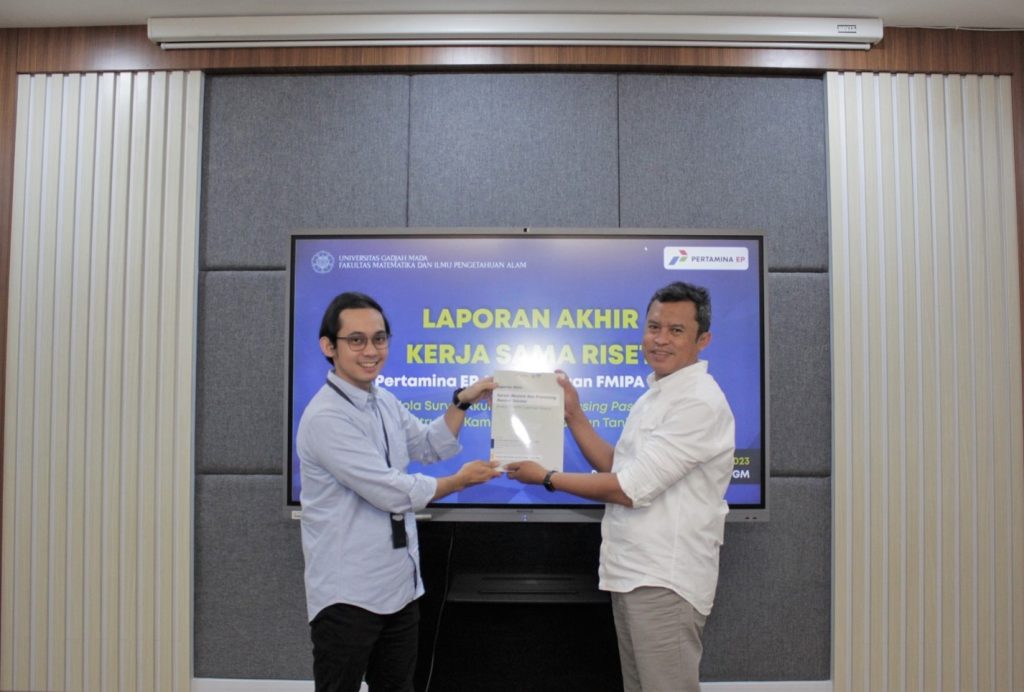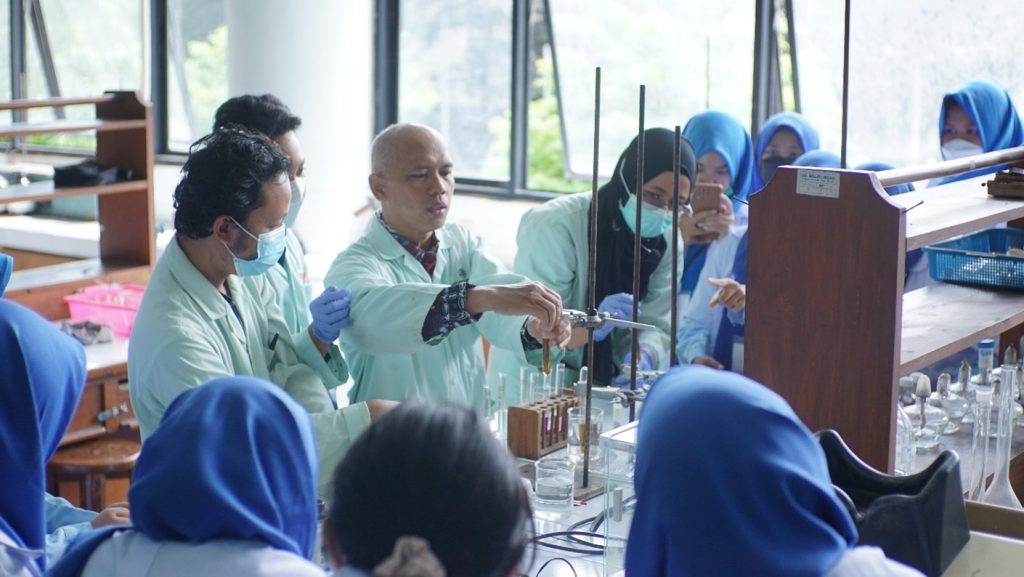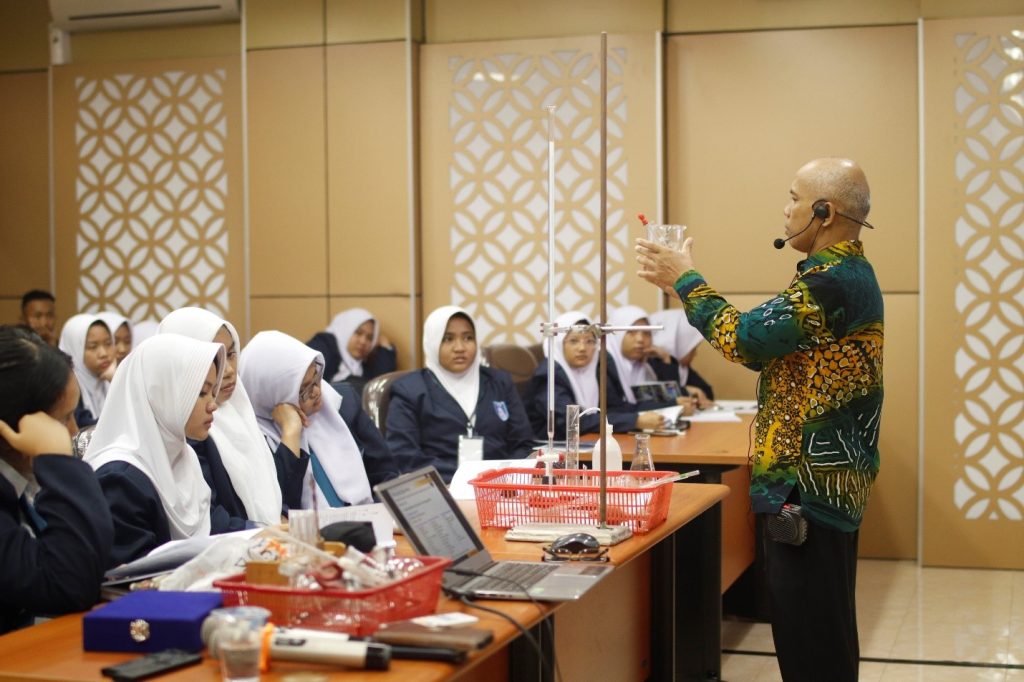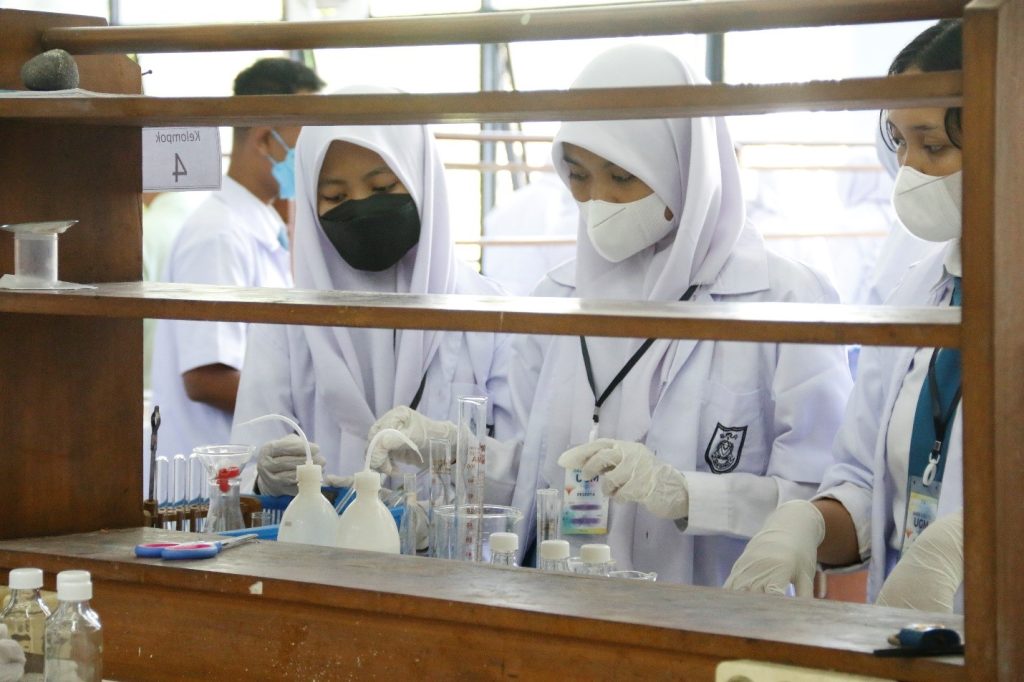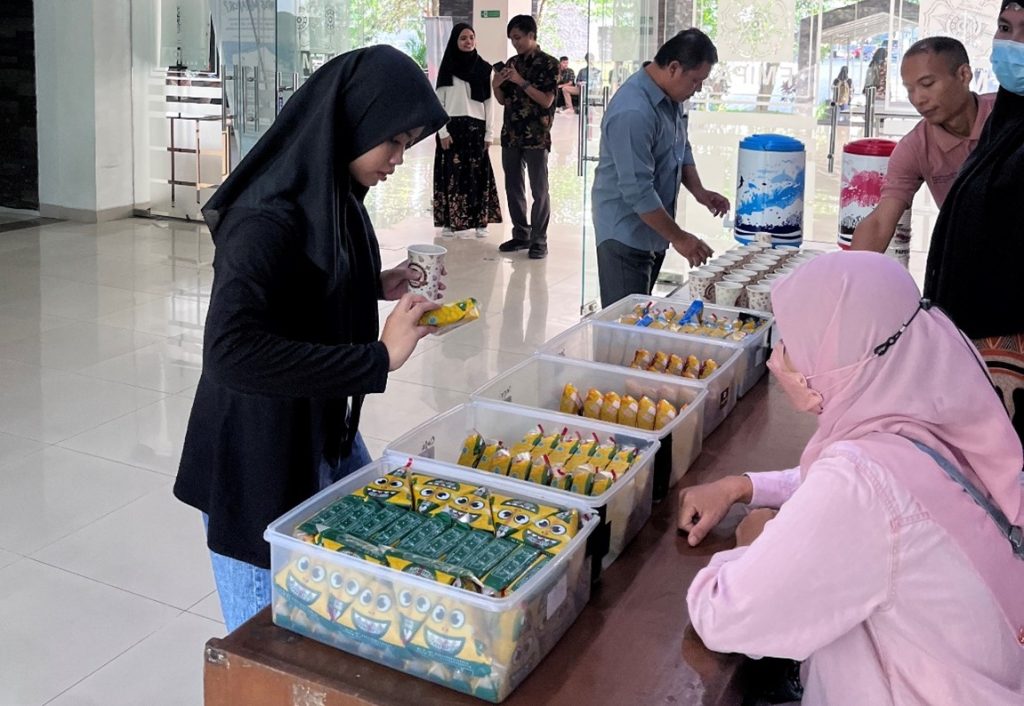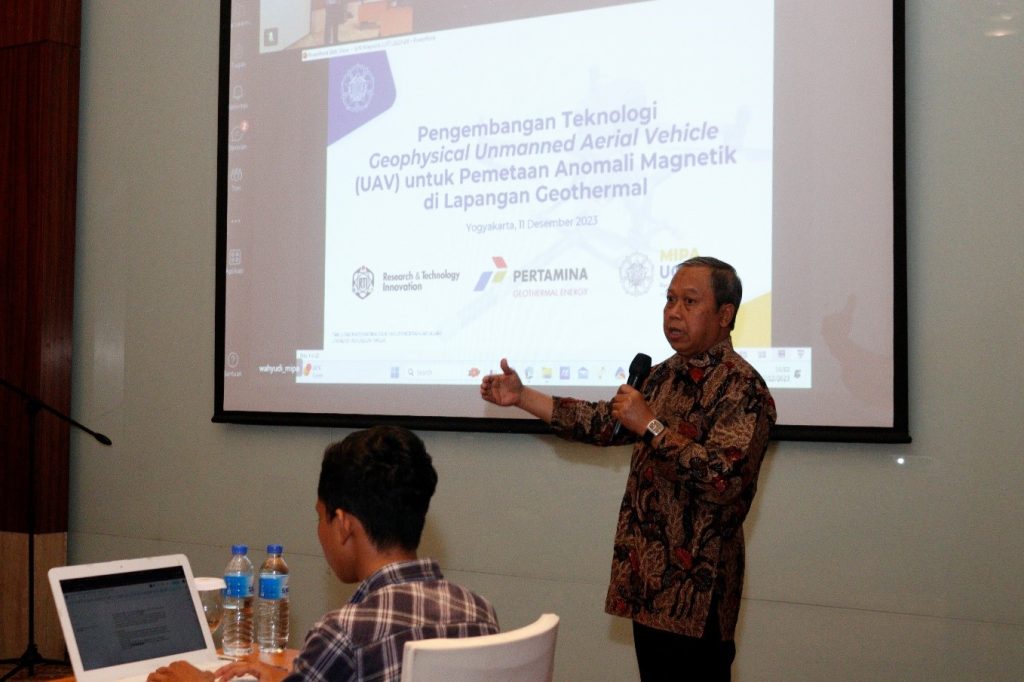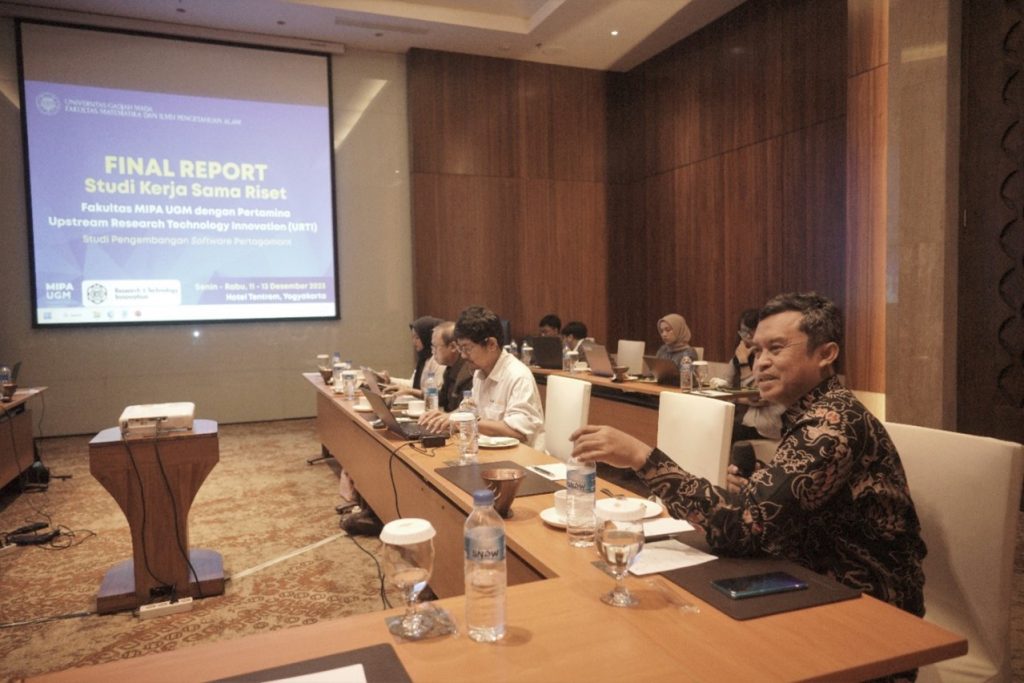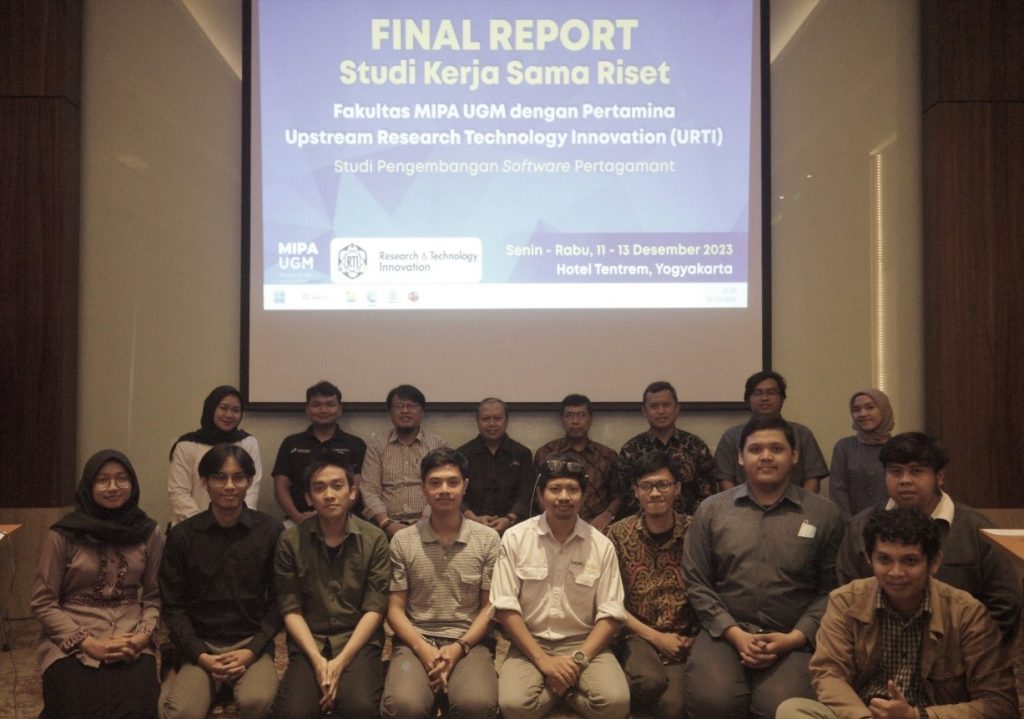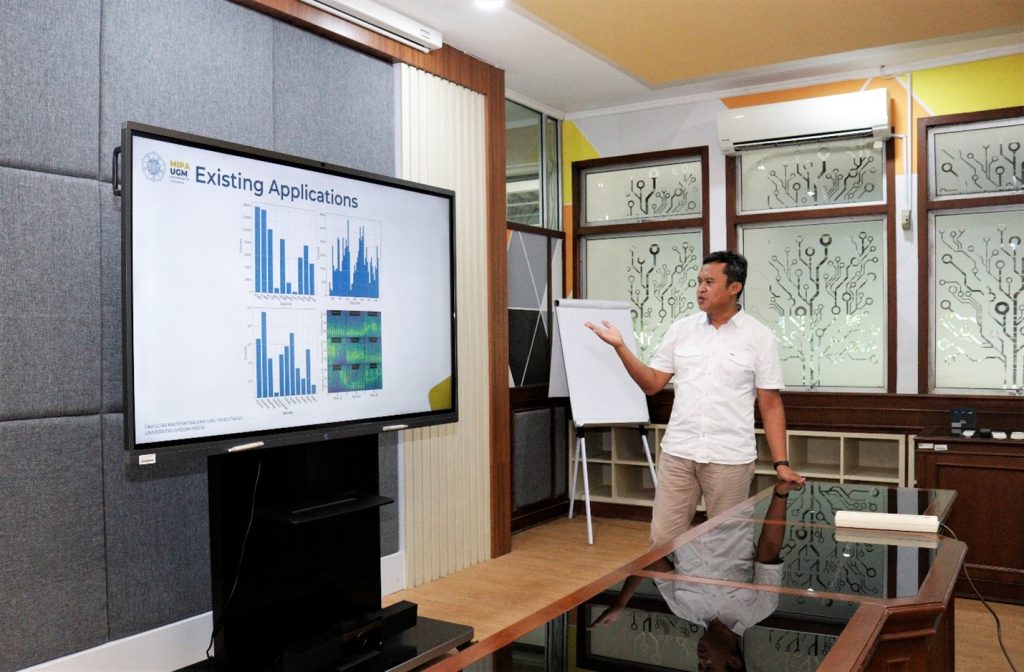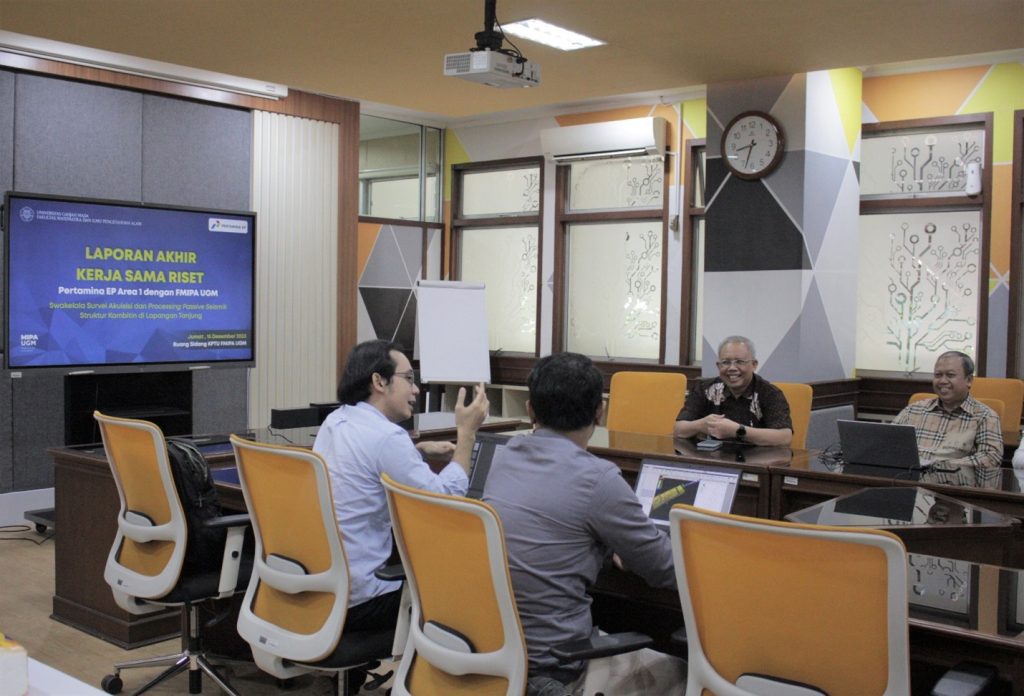
FMIPA UGM and Pertamina Implement Clean and Affordable Methods for Optimizing Hydrocarbon Potential
The exploration of hydrocarbons in Indonesia has become a crucial agenda in the effort to meet national energy needs. There are at least 5 components that need attention in energy management: utility, rationality, addition, sustainability, community welfare, preservation of environmental functions, national resilience, and integration by prioritizing national capabilities. Ideally, these 5 components should be integrated and implemented comprehensively in the effort to realize sustainable energy management in Indonesia. Referring to the aspect of sustainability, FMIPA UGM and Pertamina collaborated on research using the Processing Passive Seismic method, representing the values of the SDGs in the points of clean and affordable energy, innovation, maintaining terrestrial ecosystems, and partnerships to achieve goals.
On Friday, December 13rd , a meeting was held to discuss the final report of the research collaboration at the Faculty of Mathematics and Natural Sciences, UGM. “Appreciation for FMIPA UGM from the beginning to the end of the research collaboration. The hope is to provide a new perspective regarding the presence of hydrocarbons in the location and as an added value related to hydrocarbon analysis in the field,” explained Hafizhan Ihsandani, S.T., GGR Subsurface Development Area 1 Pertamina. In future improvements, Hafizhan also suggested further analysis to obtain optimal data (silent moments).
The head of the research team, Dr. Wahyudi, M.S. outlined the challenges in the conducted research. “The challenge is the emergence of noise from a distance. It seems clear in the field, but when analyzed, noises are found. So, we have to repeat data acquisition.” Despite this, Dr. Wahyudi expressed optimism about the sustainability of the method used because of its cost-effectiveness, low social conflict effects due to the passive nature of the method, and its environmental friendliness.
Keyword: hydrocarbon, research, processing passive seismic, clean and affordable energy
Humas FMIPA UGM | Febriska Noor Fitriana
Foto: Shofi Rahmadini
